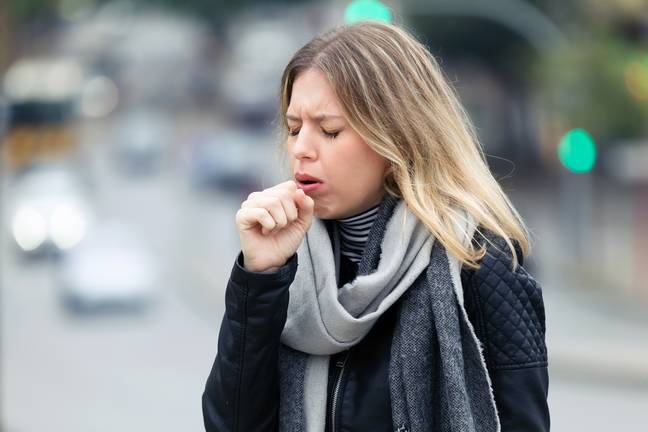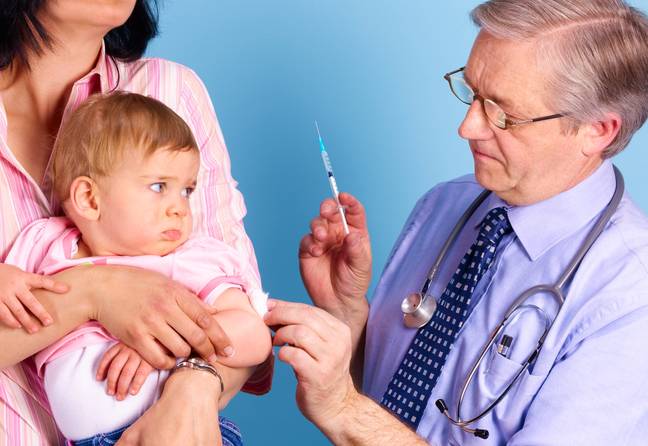
It appears as though just about everyone in the UK at the moment is coming down with cold symptoms and not feeling their best.
Whether you've got a bad case of the sniffles, a headache that you can't seem to shake, a sore throat or just feeling the effects of fatigue - you're not alone.
And it seems many have been suffering with the highly contagious '100-day cough' after a rise of cases across the nation.

Advert
The UK Health Security Agency (UKHSA) warned that there were 553 confirmed cases the highly contagious cough in England in January alone, compared with 858 cases for the whole of 2023.
But this isn't just your average tickly, phlegmy or chesty cough.
In fact, this bacterial infection has, in some cases, proven deadly.
The sickness is being referred to by medics as the '100-day cough', being that it has the ability to lead to severe coughing fits lasting as long as three months.
But this cough can also be defined as Whooping Cough - and as most parents know, this is not a concern to be taken lightly.

Professor Helen Bedford - an expert in child public health at University College London - has warned: "As expected, we are now seeing cases of Whooping Cough increase again, so it's vital pregnant women ensure they get vaccinated to protect their baby.
"Whooping Cough in young babies can be very serious and vaccinating their mothers in pregnancy is the only way of ensuring they are protected in the first few months."
This bacterial infection affects both the lungs and the throat of the patient, meaning that infant vaccination against it is absolutely imperative.
According to the NHS, after suffering with the initial symptoms of the 100-day-cough for around a week, your child will likely experience further coughing fits, which can last as long as a few minutes.

These fits are most severe at night, and can lead to babies and children needing to gasp for breath between coughs.
The patient - particularly if an infant or a baby - may turn blue during these coughing fits after struggling to breath, and can bring up thick mucus, which could subsequently lead to vomiting.
Vomiting itself can trigger extreme fatigue in the already-weary patient, and in the most severe cases, can cause a rib fracture.
These signs and symptoms of the 100-day-cough can take between seven to ten days to show themselves and are usually very mild at first - even comparable to the common cold in what they both consist of nasal congestion and a cough.
Although commonly associated with children, it is still possible for adults to get the cough, though their symptoms may be less severe.
For more information, you can visit the NHS website here.